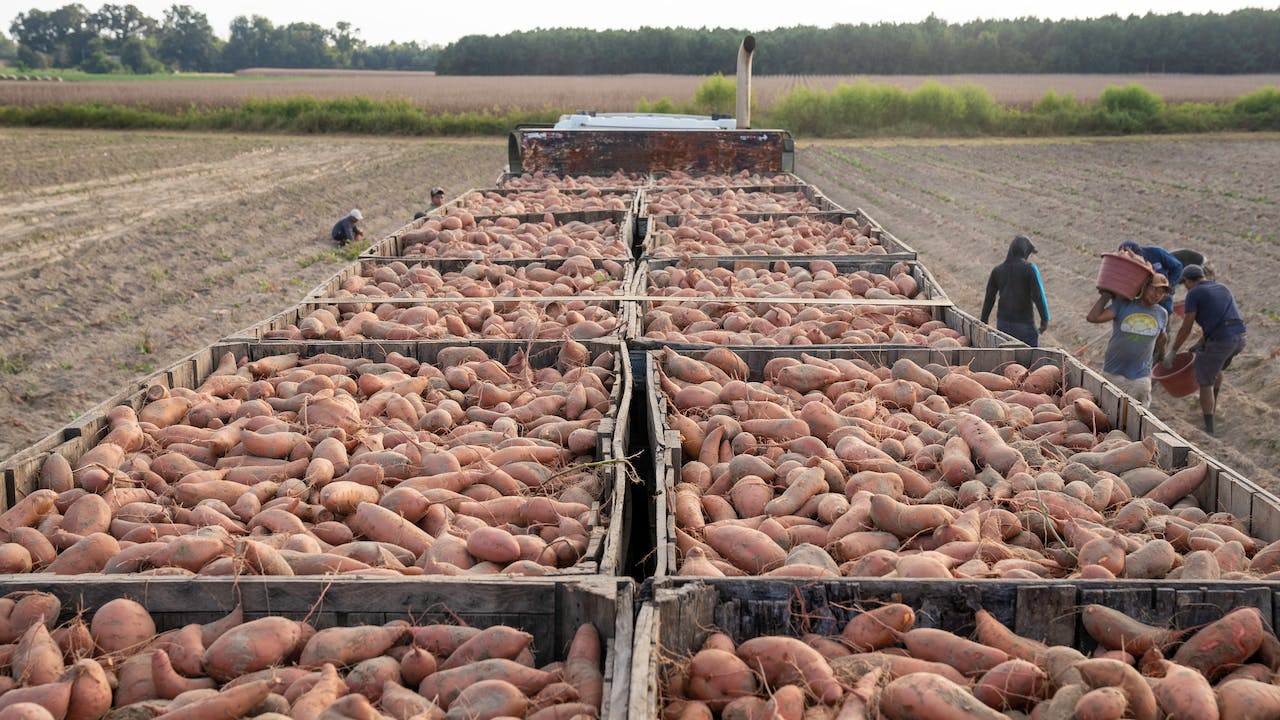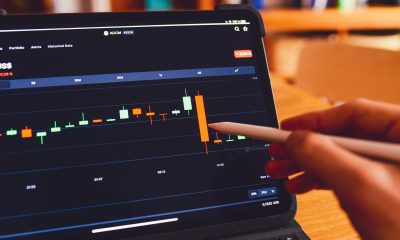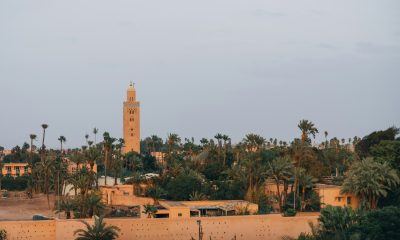Africa
Why the Agrifood Industry in Morocco is a Strategic Challenge
The organization of an international agrifood trade show in Morocco would be a key lever for stimulating local exports and positioning the country as a hub in Africa. Last but not least, the contextualization of the parties’ commitments over a multi-year horizon is necessary to ensure coordination, as well as rigorous and concerted monitoring of the action plan.

The agrifood industry represents a strategic challenge for Morocco in its quest for food sovereignty. This fundamental pillar of the national economy, excluding seafood processing, is organized, according to the National Agrifood Federation (FENAGRI), into thirteen branches of activity, employing around 150,000 people and generating sales of almost 126 billion dirhams, with added value of around 24 billion dirhams, equivalent to 8% of the Kingdom’s industrial GDP.
However, despite these achievements, the local agrifood industry still has a trade deficit. Indeed, in 2019, the deficit was around 6 MMDH. And, much to the chagrin of operators, this deficit continues to widen. The sector is facing soaring energy and raw material prices, as well as a drop in agricultural supply, mainly due to the increasingly chronic water shortage.
Read more about the importance of the agrifood industry in Morocco and find the latest economic news of the day with the Born2Invest mobile app.
Obstacles to agrifood products exports
At the same time, exports of finished agrifood products excluding TPM remain limited, with sales of 11 MMDH in 2019. This segment grew by around 9% a year between 2010 and 2019.
Exports of agrifood products, excluding TPM, are concentrated on three destinations: France, Spain, and the United States. France alone accounts for 40% of these exports. The fruit and vegetable processing sector accounts for almost a third of total agrifood exports. However, according to FENAGRI, local manufacturers face a number of obstacles to exporting, mainly in terms of knowledge of certain export markets, or what is commonly known as market intelligence. Competitiveness is also lacking.
The federation pointed out that the competitiveness gap is closely linked to high logistics costs and low utilization rates. Added to this is the absence of international certification, which makes it difficult for operators to win international markets. Access to markets through marketing and promotion is another obstacle.
The ability to develop brands and communicate effectively about products for export remains limited. Negotiating power also remains relatively weak. Exporters also have difficulty selling their products on international markets. Tariff and non-tariff barriers, even in the case of free-trade agreements with destination countries, hamper the sector’s development. Manufacturers also complain about the insurance aspect, as they find it difficult to protect themselves against the risks associated with international trade (customer default, currency devaluation, etc.).
Inclusive support
Nevertheless, the local agrifood industry offers additional potential, estimated at around 13.3 MMDH in exports by 2026. To boost exports, a paradigm shift in the export support system is gradually being deployed. To achieve this, FENAGRI is focusing on supply and support.
Indeed, it is becoming increasingly urgent to offer an inclusive support package that includes individualized support. In order to better support agrifood companies in their export activities, food industry operators are proposing key actions such as export development.
This step is an essential lever for consolidating the agrifood industry and food sovereignty. Another proposed measure is to protect the local agrifood industry against imports, by applying the principle of reciprocity to guarantee the sector’s competitiveness.
FENAGRI also proposes to define a tailor-made support offer for the various sectors of this industry, in order to better direct efforts to effectively meet their specific needs. FENAGRI also recommends concentrating efforts on national champions, which would have a stimulating effect on the sector and help establish regional sovereignty.
The organization of an international agrifood trade show in Morocco would be a key lever for stimulating local exports and positioning the country as a hub in Africa. Last but not least, the contextualization of the parties’ commitments over a multi-year horizon is necessary to ensure coordination, as well as rigorous and concerted monitoring of the action plan.
__
(Featured image by Mark Stebnicki via Pexels)
DISCLAIMER: This article was written by a third party contributor and does not reflect the opinion of Born2Invest, its management, staff or its associates. Please review our disclaimer for more information.
This article may include forward-looking statements. These forward-looking statements generally are identified by the words “believe,” “project,” “estimate,” “become,” “plan,” “will,” and similar expressions. These forward-looking statements involve known and unknown risks as well as uncertainties, including those discussed in the following cautionary statements and elsewhere in this article and on this site. Although the Company may believe that its expectations are based on reasonable assumptions, the actual results that the Company may achieve may differ materially from any forward-looking statements, which reflect the opinions of the management of the Company only as of the date hereof. Additionally, please make sure to read these important disclosures.
First published in LES ECO.ma. A third-party contributor translated and adapted the article from the original. In case of discrepancy, the original will prevail.
Although we made reasonable efforts to provide accurate translations, some parts may be incorrect. Born2Invest assumes no responsibility for errors, omissions or ambiguities in the translations provided on this website. Any person or entity relying on translated content does so at their own risk. Born2Invest is not responsible for losses caused by such reliance on the accuracy or reliability of translated information. If you wish to report an error or inaccuracy in the translation, we encourage you to contact us.

-

 Crypto2 weeks ago
Crypto2 weeks agoBitcoin Rebounds Above $70K as Crypto Markets Show Fragile Signs of Recovery
-

 Crypto18 hours ago
Crypto18 hours agoIntesa Sanpaolo Signals Institutional Shift With Major Bitcoin ETF Investments
-

 Biotech1 week ago
Biotech1 week agoEurope Launches Personalized Cancer Medicine Initiative
-

 Impact Investing2 weeks ago
Impact Investing2 weeks agoEnfinity Launches First Solar Plant in Italy with Microsoft






















